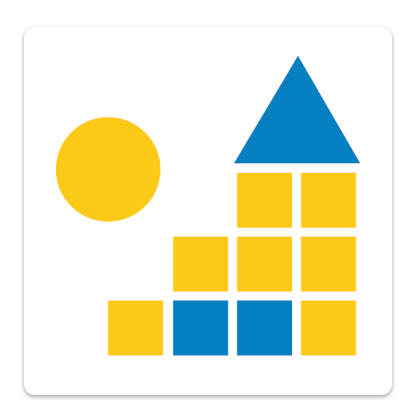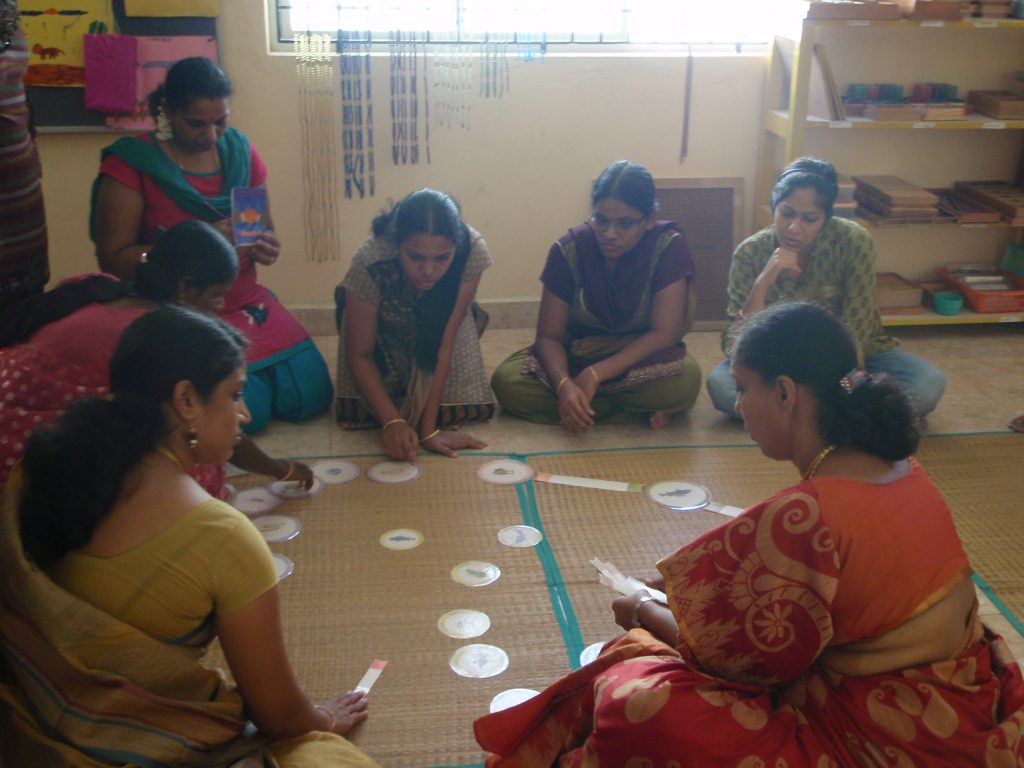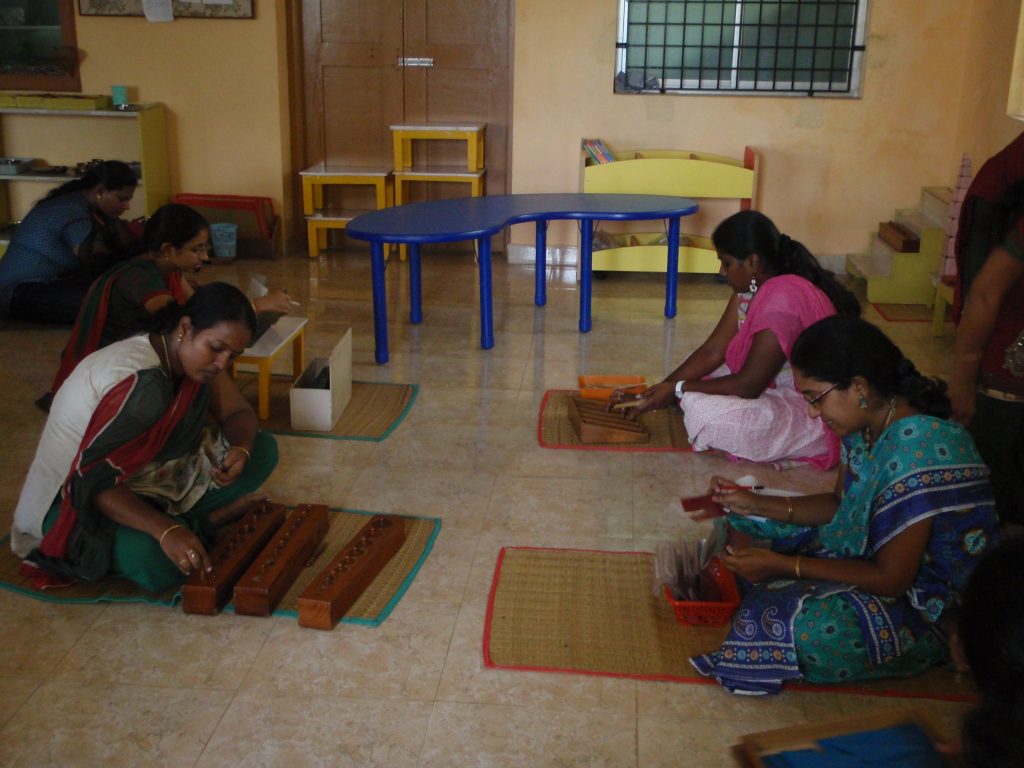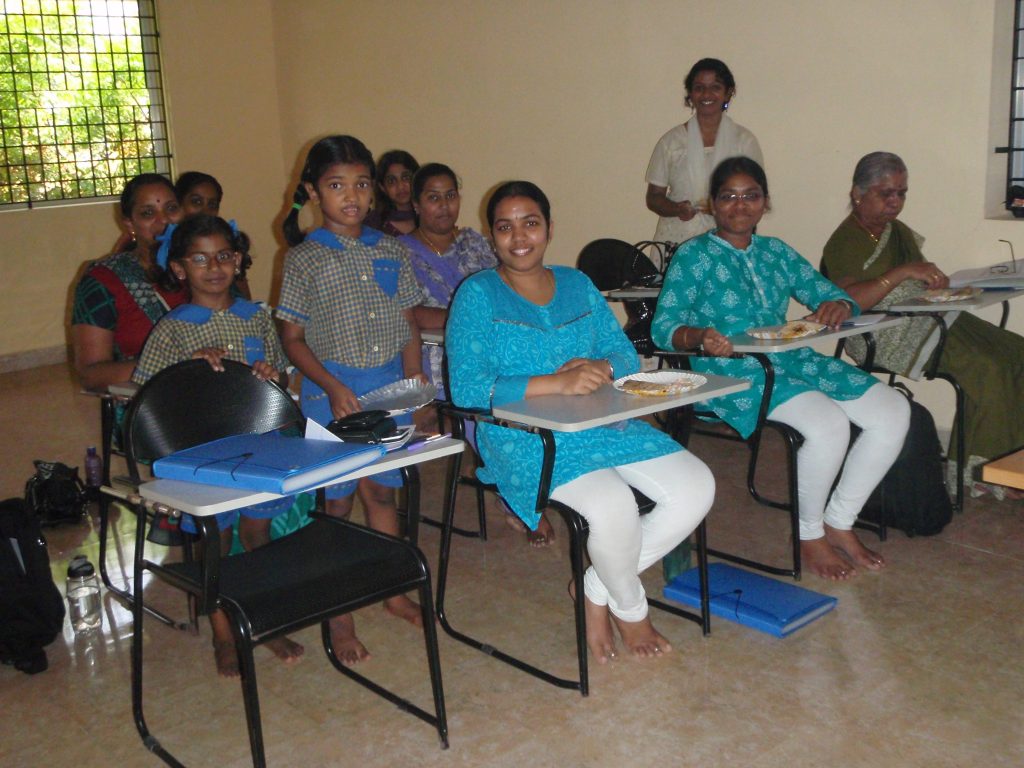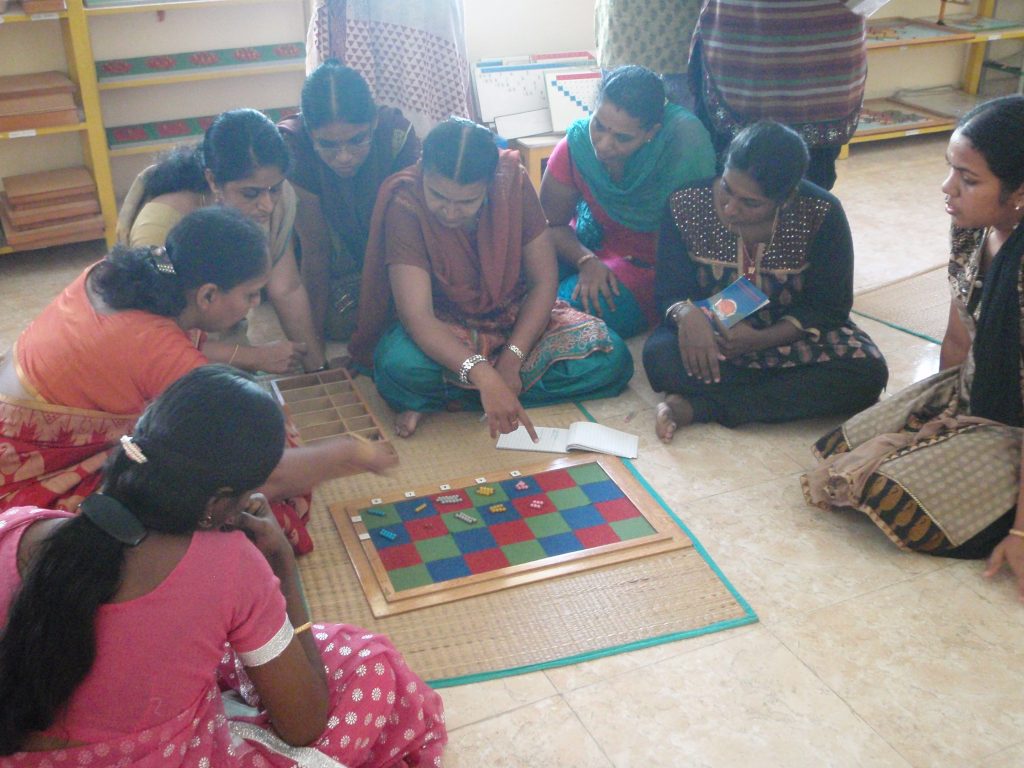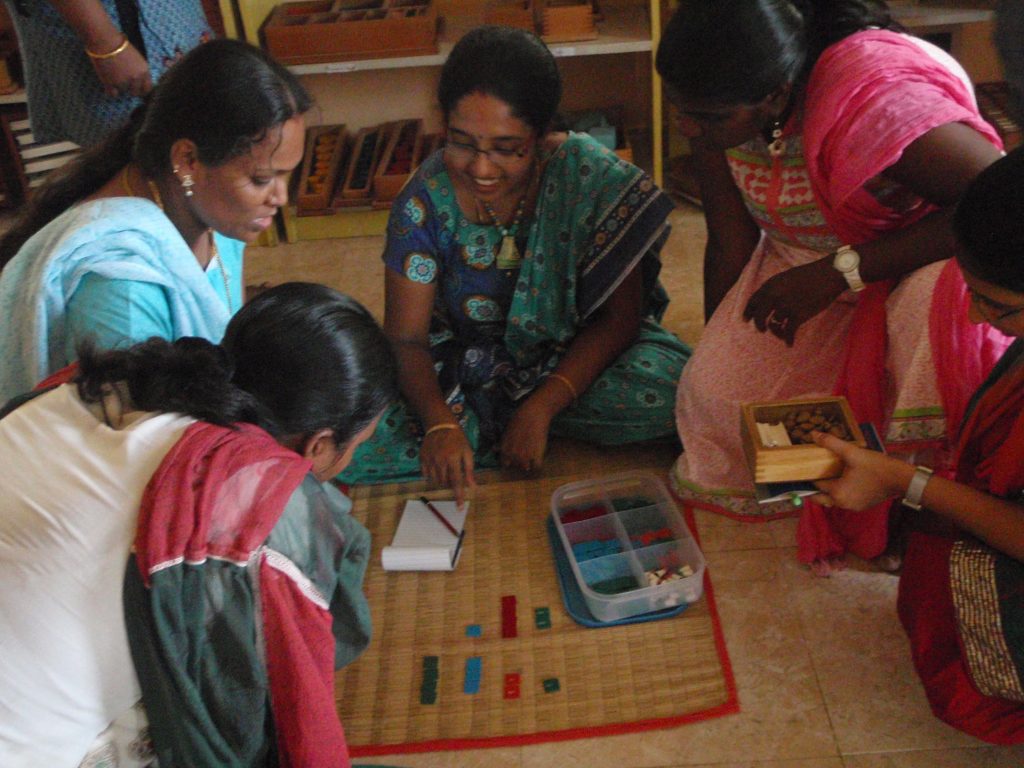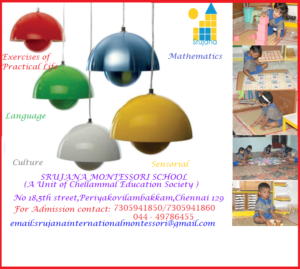Teacher training
PRE PRIMARY MONTESSORI TRAINING
The development of the child can be explained as successive conquests of independence. Sensorial, language, and mathematics are examples of such conquests. These are dependent upon the development and coordination of particular faculty’s intelligence, will power, and movement. With the unification of these faculties, activity becomes the conscious work of the unified person.
When the child comes to the “House of Children” at two and a half years of age, his powers of intelligence, will, and movement are not yet coordinated. The exercises of practical life assist in this process. These exercises are familiar activities that are performed at home; sweeping, washing, polishing etc. His intelligence is involved as his activity and by doing many deliberate movements. Reception of these exercises helps unite his powers and refine his motor co-ordination.
By three years of age, the child needs to become conscious of the physical properties of things in his environment. The child’s senses are especially acute at this age. Montessori Sensorial Materials isolate dimensions, colors, shapes, sounds, textures etc. with the help of these materials, the child makes fine distinctions. The child becomes increasingly sensitive to the stimuli in his environment, finding the world a richer place.
The child’s unconscious acquisition of language before coming to school needs to become conscious. Montessori language material helps the child to speak, write and read naturally and beautifully. The child of this age also takes delight in grammatical and syntactical analysis.
The young child unconsciously absorbs mathematics. After he is three years old the child wants to use mathematical concepts deliberately. Montessori mathematical materials are concrete representations of mathematical abstractions. The work with the material leads to the expansion of what Dr. Montessori called the mathematical mind.
Every child is an explorer. Before he comes to the “House of Children”, the child has absorbed many details of his environment, both physical and cultured. In this prepared Environment, the child is given activities to explore further and learn various forms of human culture in a scientific, methodical way. These could be history, geography, zoology, botany, or any other branch of knowledge and culture developed by Human beings.
COURSE OF STUDY
The curriculum includes lectures on Montessori child psychology pertaining to the Pre-primary age child, (3-6 years of age) relevant current research in the field or educational psychology, Montessori educational theory and practice, and supervised practice sessions with Montessori apparatus. It will include the study of language, mathematics, sensorial exercises of practical life and culture.
MATERIAL MAKING
The program requires a vast body of hand-made material. There will be material making sessions from time to time according to the need. The students may not be able to make all the material that they will need in order to function in a classroom during the course because it is an ongoing process. The students will have to purchase all the necessary stationery that will be needed to produce these materials.
ASSIGNMENTS
Students will have to prepare lesson material books on all the areas of the curriculum.
They will be asked to write papers on the basis of lectures on theory. Psychology and other areas of curriculum. Students will be asked to demonstrate their knowledge and understanding of the materials in each area from time to time. The written work will have to be submitted regularly.
EVALUATION
Assignment will be evaluated regularly. Provision will be made to allow the students to resubmit any assignment if deemed unsatisfactory upon initial evaluation. The decision of the Director of Training will be final in any matter. Students will be offered individual feedback and counseling as the course progresses.
ATTENDANCE
Students who wish to appear at the final examination must observe punctuality in attending the lectures, and practice classes. Late comers will be given half-attendance only. Less that 98% attendance disqualifies a student from the examinations. Any absence should be notified, in writing, beforehand. In case of illness, a medical certificate stating the nature and duration of illness must be submitted. Sick-level and any other absence lasting more than one week disqualifies the student from the examination and any absence, including because of illness will be included among the admissible 5%.
HOLIDAYS
Unrestricted public holidays declared by the Government of India observed in the state will be observed.
EXAMINATIONS
The examinations consist of two parts, one written and the other practical. The written part will consist of two papers, one on child psychology and other on the theory of the Montessori Method. Both papers may also contain a number of questions dealing with the practical application of the Method.
Eligibility for admission to examinations consists of:
a. Satisfactory attendance at all classes
b. Satisfactory completion of written and other assigned during the courses
c. Fulfillment of all financial obligations
d. Registration for examination by the date given.
DISMISSAL OR WITHDRAWAL
Each student is personally responsible for completing the requirements of the course. It is the student’s responsibility to be informed of the requirement. Students may be asked to discontinue the course for medical, psychological, academic or other valid reasons. Students are expected to abide by the regulations and policies of the training course. Under no circumstances will there be a refund of money paid.
Refund of the registration fee and other fees will NOT be made if a registered student withdraws before or during the course or has to discontinue for any reason.
ADMISSION
1. Candidates with a Bachelor’s degree or a teacher working in any school are eligible for this course. As special case candidates who have completed class X11 will also be considered. Good knowledge of written and spoken English is very essential in order to do the course.
The applicant must provide copies of high school and college certificates with mark sheets along with the application and two copies of recent passport size photographs. The photographs must mention the name of the students on the reverse. Application filled incompletely will not be considered. Applications should reach the office within the stipulated time given in the application form.
DURATION OF THE COURSE
The duration of the course will be about 200 hours. The course will begin on ————————————————————————-
COURSE FEES
Prospectus and application ————————- Rs.500.00
Registration Fee ————————————— Rs.2, 000.00
Stationery fee ——————————————- Rs.3, 000.00
Tuition fee ———————————————– Rs.19, 500.00
Exam fee ————————————————-Rs.3, 000.00
STATIONARY AND OTHER REQUIRMENTS
Stationary, book and other things required by the student during the course will have to be procured by the student.
Stationary item required:
1. Art paper in three or more colors
2. Files
3. Loose blank paper
4. Chart paper
5. Geometry file sheets
6. Nomenclature chart sheets
7. Blade and metal scale
8. Water colors
9. Instrument box
10. Pair of scissors
11. Markers
12. Colored pencils
The above list is for guidance only. Special instructions will be given during the course for the purchase of bank paper, geometry file sheets, files, and chart paper.
MONTESSORI BOOKS
PREPRIMARY:
1. The secret of the childhood by Dr. Maria Montessori
2. The Absorbent Mind by Dr. Maria Montessori
3. Maria Montessori, her life and work by E.M. Standing
4. The child’s Right to Develop by Albert M. Joosten
5. Education as a Help to Life by Albert M. Joosten
6. The Exercises of Practical Life by Albert M. Joosten
7. Education for a New World by Dr. Maria Montessori
8. The child in the Family by Dr. Maria Montessori
